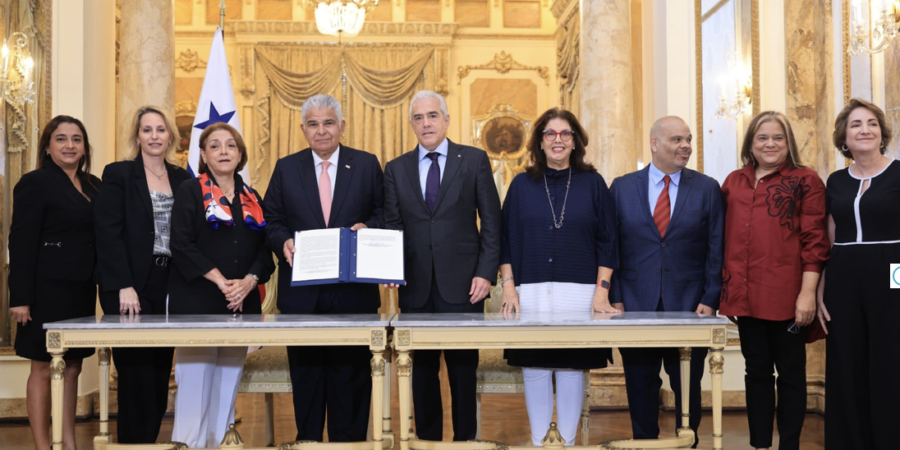The IAPA, for its part, valued the signing of both declarations as a “historical landmark” for Panama, focused on preserving freedom of expression and the press, the Panamanian Government highlighted.
The president of Panama, José Raúl Mulino, ratified his commitment to freedom of expression and press, highlighting that his government has established important advances in transparency, after signing this Thursday the declarations of Chapultepec and Salta II, being the first president of the region to adhere to the latter.
Of his government’s progress in transparency, Mulino cited the digitization and publication of all the minutes that are approved in the Cabinet (Council of Ministers), as well as in the information of the so-called discretionary item, which is managed from the Presidency, and also its weekly conference.
“I have shown signs of openness. We took all the minutes of the Cabinet Council that for years were reserved matter, were digitized and uploaded to the website of the Presidency of the Republic, as it always should have been,” said the ruler.
“I have nothing to hide, I have no businesses and I don’t have partners or intermediaries to manage for me in the different organs of the State, absolutely nothing,” Mulino remarked after initialing the declarations of Chapultepec and the Declaration of Salta II before executives of the Inter-American Press Society (SIP).
The IPA, for its part, valued the signing of both declarations, focused on preserving freedom of expression and the press, as a “historical landmark” for Panama, the Panamanian Government highlighted.
In addition, the organization highlights that Panama is the first in the region to sign the Declaration of Salta II, with which it sets a precedent that it hopes “to be emulated throughout the Americas.”
The president of the IAPA, José Dutriz, said that Panama’s accession and renewal of its commitment to the principles of the declaration of Chapultepec and Salta II, is a “very significant” step in favor of Panamanian democracy “at a time when we are experiencing a lot of political polarization in the region.”
“We believe that Panama will have a very favorable environment for the free exercise of journalism,” said Dutriz, who praised the operation and progress of the National Authority for Transparency and Access to Information (ANTAI), attached to the Presidency, under the management of Mulino, in terms of transparency and accountability, says an official statement.
The Chapultepec Declaration was adopted by the hemispheric conference on freedom of expression held in Mexico in March 1994. Panama signed its accession in June of that same year, when it was signed by Guillermo Endara (1989-1994), the first president who took office constitutionally after the military regime.
Other Panamanian presidents have signed the Chapultepec Declaration.
The Declaration of Salta II was approved last October by the IAPA and is an update of the original text (Salta Declaration, 2018) that adapts it to the challenges faced by press freedom in the new digital environment.
The SIP recognized the commitment of the Mulino administration not to manipulate the state advertising pattern, “a practice that in the past generated inequalities towards the press,” Dutriz said.
According to a IAPA report published during its 80th Assembly last October, the “biggest problem” of journalism in Panama “remains” the judicial harassment of the media to “silence” investigations of alleged corruption.
Mulino, for his part, appealed this Thursday to respect and truth on the part of the media.
“Under the pretext of reporting, you can’t lie, much less end people’s honor. There must be a balance between the media, public action and citizen action; not everything can be a presumption of guilt,” Mulino said.
